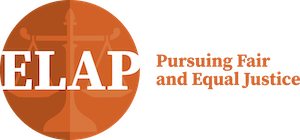Renters in our region face a dire situation, according to Dan Bertolet, director of housing and urbanism for Sightline Institute, “Surging home prices and rents are leaving incomes in the dust,” specifically in Washington cities (1).
The city of Kirkland is one local city that’s proposing changes to protect its vulnerable tenants. You can help advocate for these changes. Here are the city of Kirkland’s proposed renter protections:
- Increasing notice to 120 days for rent increases over 3% and to 180 days for rent increases over 10%
- Capping move-in fees and deposits to one month’s rent
- Capping late fees to 1.5% of one month’s rent
Take Action: To help these protections pass, you can email citycouncil@kirklandwa.gov to voice your support. The vote is on Wednesday, Aug. 3.
Background Information on this Proposal:
The city of Kirkland, following suit with Kenmore and Redmond (2), is considering increasing protections for tenants by requiring 120 days’ notice for rent increases over 3% and 180-days’ notice for increases over 10%, limiting move-in fees and deposits to one month’s rent, and capping late fees to 1.5% of the monthly rent. Each of these measures are vital to providing security to tenants.You can help them pass by emailing citycouncil@kirklandwa.gov to voice your support for these measures without exemptions for small landlords.
These proposals are important, especially for low-income tenants, as rent makes up a disproportionate percentage of income, and thus increases in rent affects them the most. According to the US Bureau of Labor Statistics, the bottom 1/5 of renters use 56% of their income on rent (3). With rent on the rise, this group finds it even more difficult to keep up as they balance rent against other living costs. Sudden rises in rent will cause tenants to fall behind – lengthening the notice to 120 days for rent increases over 3% will help tenants plan ahead.
While rent price is important to affordable housing, a significant barrier that is often overlooked is deposit amounts. According to a Federal Reserve study, 40% of Americans would struggle to find funds to cover an unexpected expense of $400; deposits can reach much higher than that (4). The Washington Post explains, even if rent is low, deposits can be insurmountably high and prevent low-income tenants from finding housing (5). Capping deposit amounts at one month’s rent—as Seattle has done—would make housing more accessible.
With restrictions on late fees being lifted, low-income tenants face yet another obstacle to affordable housing. For low-income tenants already struggling to meet rent, late fees of up to 20% of their monthly rental amount can dig them into a financial hole. Not only that, but late fees are frequently targeted most at marginalized communities. According to a Harvard study, landlords for neighborhoods with a greater number of residents of color were more likely to pursue late fees and eviction (6). Renters already face significant consequences for falling behind on payments, such as hurt credit scores and possible eviction – capping late fees to 1.5% of the monthly rent will help tenants get back on their feet.
Please reach out to the Kirkland City Council and voice your support. If you don’t know what to say or want help expressing your message, you can email the Stay Housed Stay Healthy coalition for help crafting your message at stayhousedstayhealthy@gmail.com. This is a great opportunity to help bolster our community; together, we can make a difference.
Also, check out the Housing Justice Project, which has done great work in supporting these measures.
By Evan Yi, ELAP intern, with legal review by ELAP staff attorneys
References:
1. Bertolet, Dan. “Washington’s Shortage of Homes Is Squeezing Communities throughout the State.” Sightline Institute, 26 Apr. 2022, https://www.sightline.org/2021/09/08/washingtons-shortage-of-homes-is-hamstringing-communities-throughout-the-state/.
2. “Housing.” Redmond Washington, https://www.redmond.gov/612/Housing.
3. “The Effects of the Rent Burden on Low Income Families: Monthly Labor Review.” U.S. Bureau of Labor Statistics, U.S. Bureau of Labor Statistics, https://www.bls.gov/opub/mlr/2018/beyond-bls/the-effects-of-the-rent-burden-on-low-income-families.htm.
4. Report on the Economic Well-Being of U.S. Households in 2017, May 2018. https://www.federalreserve.gov/publications/files/2017-report-economic-well-being-us-households-201805.pdf.
5. Weese, Karen. “Security Deposits Can Be a High-Cost Hurdle to Affordable Housing.” The Washington Post, WP Company, 21 May 2020, https://www.washingtonpost.com/realestate/clearing-a-housing-access-hurdle-options-for-a-security-deposit/2020/05/20/4508d4e6-5263-11ea-b119-4faabac6674f_story.html.
6. Whitney Airgood-Obrycki Senior Research Associate, et al. “Harvard Joint Center for Housing Studies.” Joint Center for Housing Studies, 14 July 2022, https://www.jchs.harvard.edu/.



